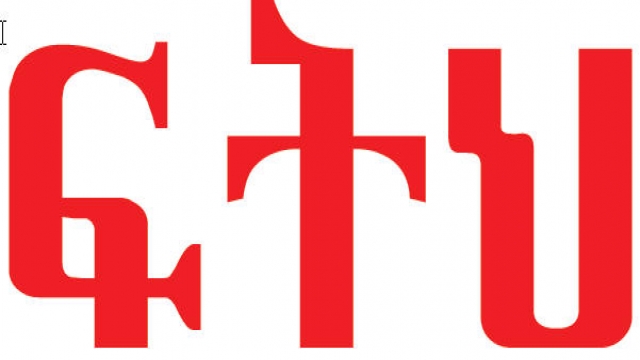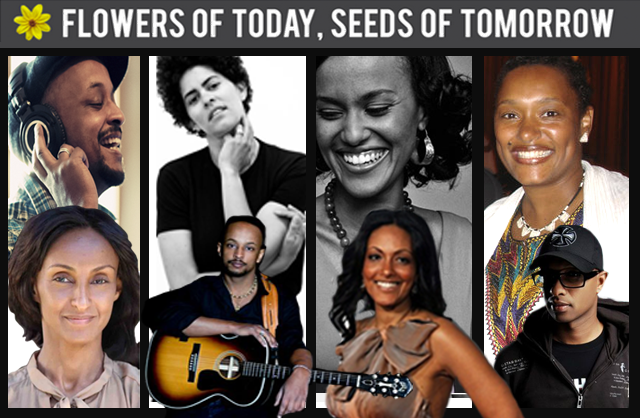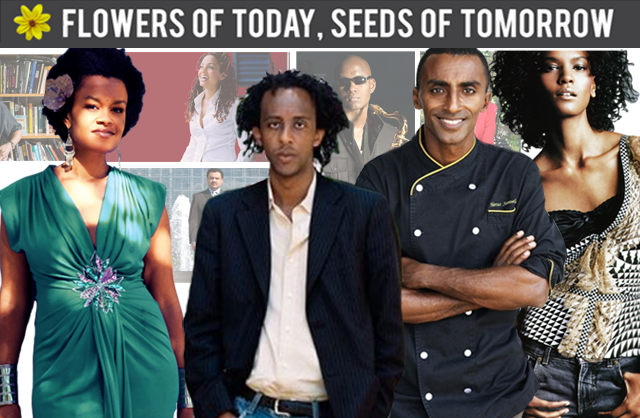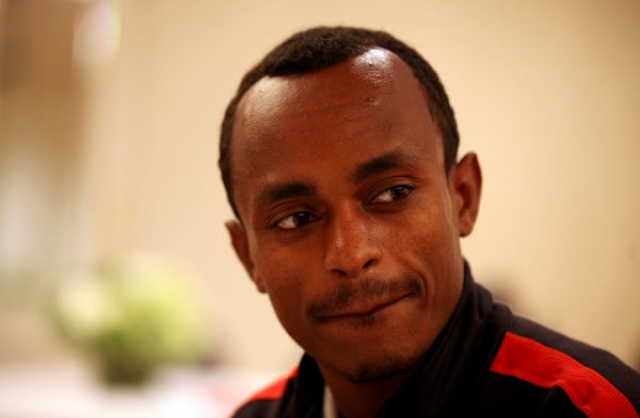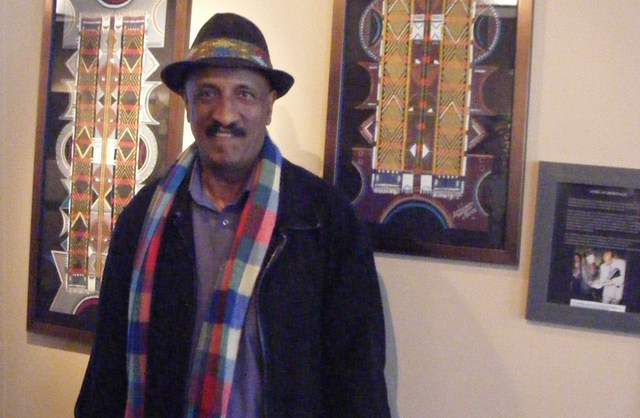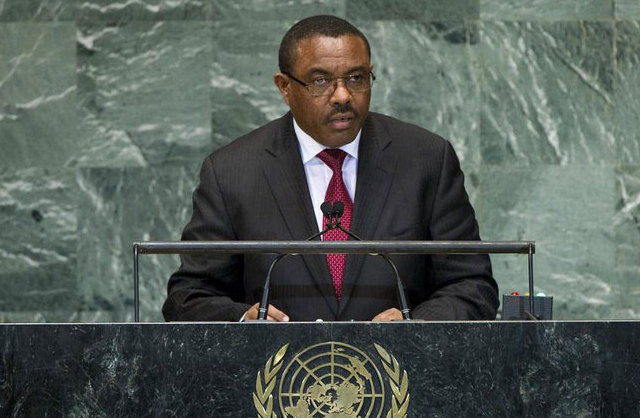 Prime Minister Hailemariam Desalegn, pictured at the 67th United Nations General Assembly meeting on Friday, September 28, 2012. (Photo: UN/Marco Castro)
Prime Minister Hailemariam Desalegn, pictured at the 67th United Nations General Assembly meeting on Friday, September 28, 2012. (Photo: UN/Marco Castro)
VOA News
By Sophia Gebrehiwot
WASHINGTON D.C. – Solomon Ayele Dersso Phd, is a senior researcher with Peace and Security Council Report Program at the Addis Ababa Office of the Institute for Security Studies. He has published articles on the ongoing political situation in Ethiopia.
Regarding the newly appointed Prime Minster Hailemariam Desalegn, Solomon says, it did not come as a surprise. However, to concerns raised by observers that the new Prime Minister might not hold real authority, Solomon asserts that the Prime Minister ship is the highest executive authority in the country, and the person holding the position cannot be said not to have authority, because he/she has the power inherent in the job.
Solomon draws a parallel between former Kenyan President Daniel Arap Moi and Prime Minster Hailemariam Desalegn. “Daniel Arap Moi like Ethiopia’s new Prime Minister came from a small ethnic community. When Jommo Kenyatta passed away and Mr.Moi assumed the presidency, he was met with resistance from the group that at that time was dominating the power base in Kenya.”
Despite the initial resistance from ‘real power holders’, Mr Moi managed to very successfully make himself an influential president and ruler of Kenya,” states Solomon.
When critics point to the fact that the Prime Minister is a political novice and might be overshadowed by his subordinates with longer experience in politics Solomon says, “he is not new to politics.”
Prime Minister Hailemariam Desalegn has been around, particularly in the seat of power in Addis Ababa following the 2005 elections as well as serving as an advisor to the late Prime Minister. After the 2010 election he was appointed deputy Prime Minister and Foreign Minister.”
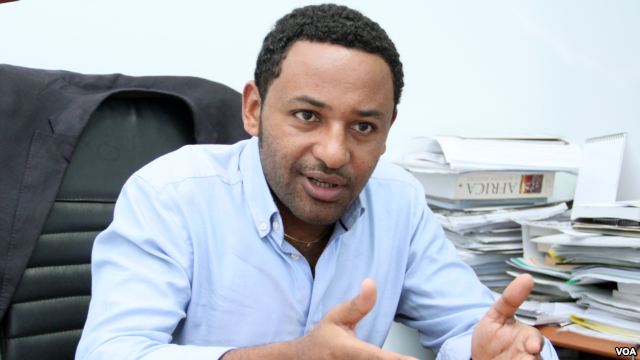
Dr.Solomon Deresso Ayele. (VOA photo)
However Solomon admits that the new Prime Minister might have limited experience when compared to those who have been in power for the past two decades in the ruling party. Although that could be construed as a disadvantage, the Prime Minister, according to Solomon, has to reconcile with the situation. Ultimately, Solomon says, “what matters is the team of people the prime minister is going to surround himself with. If he has a very good team of people to provide him with the necessary historical memory and insights on various aspects of leading the country, then surely he can compensate for the shorter period of political experience and be able to exert and assert his full authority.”
Drawing a parallel with Meles Zenawi, Solomon states, “we need to understand how long it took for the late Prime Minister to become as influential as he was at the time of his death. It took quite a lot of time in terms of asserting his full authority within the government as well as in the country as a whole”.
According to Solomon the rise to power of Prime Minister Hailemariam Desalegn is a continuation rather than a start of the succession plan by the EPRDF. It is a process of replacing the old guard with, ‘the new generation leadership’. According to Solomon the fact that Hailemariam is now appointed as Prime Minister after Meles Zenawi, is surely an indication of the commitment by the EPRDF to continue the succession plan that began earlier. On the issue of whether or not we will see a complete withdrawal of the old guards by 2015, Solomon says it could be a phased process.”
In his acceptance speech the newly appointed Prime Minister expressed his willingness to work with various sectors of society including the opposition. According to Solomon the Prime Minister’s speech emphasized more continuity rather than change. He seems reluctant to reverse the direction set by the late Prime Minster. However, Solomon points out that the Prime Minister needs to be flexible and needs to adjust to emerging circumstances as events warrant.
Solomon also highlighted a number of areas that require a very serious consideration. “The new leadership should show a high level of willingness to listen to the concerns of all sectors of society,” Solomon asserts. He further noted the need to abrogate laws that proved to be inimical to individual freedoms and liberties adopted since 2005 , as well as tackle inflation to address the economic challenges that some sectors of the Ethiopian society is facing .
Solomon also talked about the needed interventions in the area of major development projects. For a successful implementation of this development projects he says it is important to engage sections of the society that are directly affected by the projects. In this effort he points out mobilizing the support of sectors outside the power base is paramount.
On the challenges of building a multi- party democracy with some opposition parties not committed to working together, Solomon said, “strengthening the legal, political and social environment of the country will allow different political ideologies and political movements to triumph in the society. Working together is always good for the society and the country but is not necessarily a sign that multi-party democracy does not work.” He further states that freedom of association and expression are strongly entrenched in the constitution but they are not fullfilled in practice.
To the concerns raised by some that due to his rather strict religious orientation that the Prime Minister Hailemariam Desalegn might be too soft to resolve pending issues such as the Ethio-Eritrean question and EPRDF’s relation with opposition parties Solomon said,“the Prime Minister’s religious conviction will not have so much influence on his exercise of power rather the central background for his action seems to be the conviction surrounding the ideological orientation of his political party.”
Click here to listen to Sophia Gebrehiwot’s interview with Dr Solomon Ayele.
—
Related:
Ethiopian President Targets Double-Digit Inflation (VOA News)
Civil Discourse: The State of Journalism in Ethiopia (TADIAS)
Editorial: Regarding PM Hailemariam’s VOA Interview (TADIAS)





